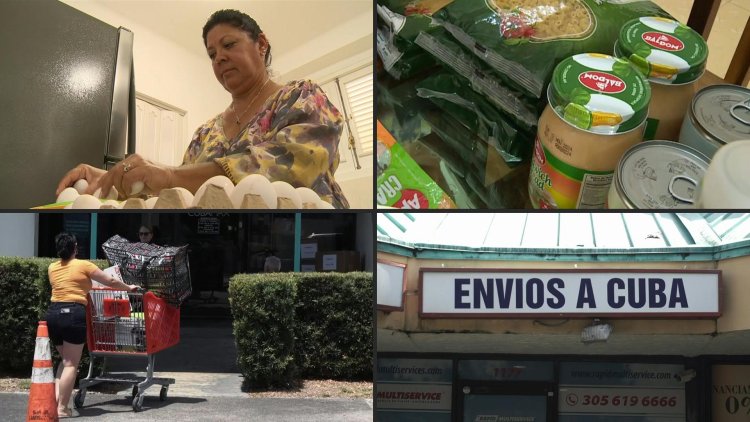Cubans Abroad Send Care Packages Amid Economic Crisis

These days, with a severe economic crisis and food shortages, Cubans abroad increasingly prefer to send care packages to family back home, rather than cash transfers.
After several years of double-digit inflation, a carton of 30 eggs now costs 3,300 pesos ($27,50) on the communist island, where the average salary is 4,800 pesos.
Cuba's bleak economic circumstances have pushed some five percent of the population to flee in recent years.
Online stores offering the delivery of essential products to Cuba have flourished as demand rises.
Most are based in the United States -- home to two million Cubans -- but they have also cropped up in Mexico, Canada, and Spain.
Every day dozens of delivery vans and private vehicles can be seen on the streets of Cuba distributing packages of food items that are in short supply, or whose prices have skyrocketed since the government authorized private-owned stores in 2021.
Cuba has been battling sky-high inflation and shortages since the pandemic -- which hit tourism hard -- plus a tightening of US sanctions in 2021, combined with structural weaknesses in the economy.
Cuban economist Emilio Morales, who chairs the consultancy, said this figure has since dropped "from $2 billion in 2022 to $1,9 billion in 2023."
Morales said emigrants also increasingly prefer "to invest large sums of money in getting their families" out of the country or pay online companies to send packages to their door.
According to the Havana Consulting Group, based in Miami, remittances from the United States to Cuba reached a record $3.7 billion in 2019, becoming the country's second source of income after the export of medical services, and above tourism.















